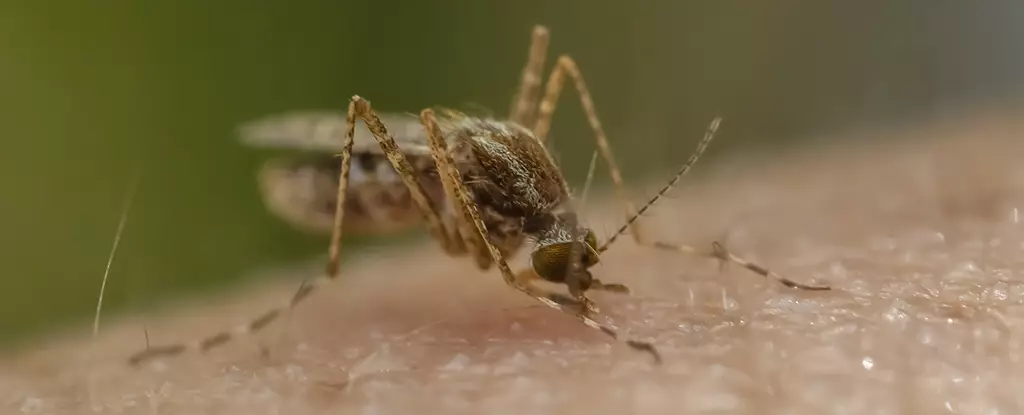Malaria has long posed a significant public health challenge worldwide, particularly in tropical regions. While traditional strategies to combat malaria have focused on control measures such as insecticide-treated bed nets, antimalarial drugs, and environmental management, a new and innovative approach is emerging: utilizing genetically modified mosquitoes to deliver a promising vaccine. Recent groundbreaking research conducted by scientists from Leiden University and Radboud University in the Netherlands has shown the potential of a novel vaccine that may drastically enhance immunity against malaria.
Traditionally viewed as vectors for transmitting malaria, the role of mosquitoes is being reimagined. The vaccine under investigation is a second-generation product that utilizes a genetically attenuated variant of the parasite Plasmodium falciparum, the primary cause of malaria in humans. Unlike conventional vaccines that may rely on weakened pathogens or fragmented pieces of the virus, this approach introduces a version of the parasite that has been genetically engineered to be non-pathogenic. Named GA2, this altered parasite is non-infectious, meaning it can stimulate an immune response without causing the disease.
The novel aspect of this research lies in the delivery method. The GA2 variant is administered through a bite from a specially engineered mosquito, allowing the parasite to reach the liver—the primary site of malaria infection—just as it would in a natural malaria infection. However, the genetic modifications prevent it from developing fully, effectively lowering the risk of actual infection while preparing the immune system to fight off real malaria.
Clinical trials of the GA2 vaccine yielded compelling results. A significant majority of young adults who received the new vaccine—eight out of nine—gained protection against malaria, a stark contrast to the one out of eight success rate associated with existing vaccine options. This dramatic improvement is critical, especially considering the ongoing challenges posed by malaria, which afflicts millions globally and leads to substantial mortality rates.
One hypothesis that emerged from the study is that the GA2 parasite takes longer to mature within the liver—approximately one week, unlike its predecessor GA1, which matured in just 24 hours. This extended time frame allows the immune system more opportunity to recognize the foreign entity and mount a robust defensive response. The study reported a notable increase in both the quantity and diversity of immune cells activated by the GA2 vaccine, suggesting that a wider immune response may contribute to its enhanced effectiveness.
Despite the promising efficacy of the GA2 vaccine, safety remained a top priority during the trials. Reported side effects were mild, primarily limited to localized irritations such as redness and itchiness at the application sites. Participants were also provided with antimalarial medication post-trial, further ensuring their safety. While the initial results are encouraging, further research is necessary to comprehend the broader implications fully and to refine the vaccine for future use.
However, translating this innovative approach into practical public health solutions poses challenges. While using modified mosquitoes is a useful academic exercise, deploying such a method at a community level remains a complex issue. Not only would regulatory hurdles need to be navigated, but public acceptance of genetically modified organisms is variable across different cultures and communities.
With nearly 250 million malaria cases reported annually, and an alarming number of fatalities, the urgency for effective vaccination strategies cannot be overstated. Current vaccines achieve only a moderate protection rate of 50 to 77 percent and typically provide immunity for less than a year. The ongoing research into the GA2 vaccine offers a beacon of hope, demonstrating a potential pathway toward a more effective malaria vaccine.
As scientists continue to explore this innovative method of vaccination, the collaboration between microbiologists, vaccinologists, and public health experts will be vital in the journey from promising clinical results to impactful public health interventions. The adaptability of mosquitoes may soon yield a new weapon in the fight against malaria, illustrating the importance of innovative thinking in solving long-standing health challenges.


Leave a Reply